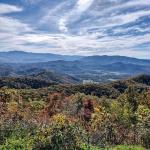A new HBO series The Anarchists is really about faking community. Briefly stated; the series is about a group of anarcho-capitalists, followers of conspiracy theorists and the ideologies of Ayn Rand and Murray Rothbard. I won’t spoil the ending. I will let CNN do that. Inherent contradictions and lack of trust in one’s neighbors make communities unsustainable. John Galt’s utopia is literary nowhere. The sad fact is many Christians want to believe the phony freedom of exchange line. Shaking my head at the women who see empowerment in Ayn Rand characters is giving me a concussion. Conspiracy theorists eventually lead their followers into resentment fueled racism. Imagining one’s self to be some sort of “Philosopher-King” is mere self-indulgence. What makes for real community?
Fencing and Faking
The common belief is that good fences make good neighbors has sound roots. Standing with my neighbor at the fence allows a sense of boundary and separates our dogs. The fence is a good place to walk away from when an argument ensues. The neighbor does not pursue and harass the other one. I do not make it a habit to argue with my neighbors. But there are times I have. The fence is a boundary that allows reconciliation to happen.
Good fences do not demonstrate the second greatest commandment. Loving one’s neighbor involves more than not crossing a recognized boundary. It is concern for the welfare of the neighbor. If my neighbor is in need, what should I do? Do I wait to be invited? What if I am in need? How do my neighbors know about it unless I knock on their doors?
A neighbor once offered to lend me a tool that would have made my work easier. I refused the offer. However, if he had brought the tool over to help me do the work, I would not have refused it. Why? The effort to help changes the dynamic. I was not responsible for what was handed across the fence.
Community Loss
The hyper-individualism of Rothbard and Rand hearkens back to the heroic age of ancient times. Their readers forget those are mythological times. The hero Odysseus spends his life seeking for what he gave up to fight against Troy. His problem is that life is not static. Let me give an example of the tragic consequences.
Our Annual Conference insurance program is an example of what happens when we forget life is not static. Like all employer-based health insurance, the insurers are all in a pool of the insured. Our pool has gotten too small and too old. Our health insurance program would be easier to manage if everyone would maintain adequate health and remained 35 years old. But the pool is aging and shrinking. The premiums reflect the unsustainability.
Church leaders do not get this fact across very well. It is not entirely their fault when few of us want to listen. The congregations and clergy tend to think of themselves in ways that help themselves. It is wrong. Love of neighbor is lost. The desire of clergy and churches to disaffiliate can only make the problem worse.
Faking Church
The world is not my parish. I live and work locally. I do not consider myself part of a greater global community. Perhaps I should. But, even if I did think that way, my task is still the betterment of life around me. The Theological Task says it is to make disciples for Jesus Christ for the transformation of the world. I wonder. Those words are really meaningless if we are making disciples for Jesus and never transforming the world. How should those new disciples learn to transform the world unless they see it being done?
This where faking community and faking church are the same thing. Congregations believe themselves to be capitalist enterprises in competition with other congregations. “Entrepreneur Pastors” are manifestations of the insanity. The madness of faking church believes this is the best way to do church. The reformers eventually saw each other as rivals for truth. The churches were not communities but part of larger communities based on other-than-Christian rules. Many people like this status quo. It opens the possibility of equating hyper-individualism with faithfulness.
The Divine Vision
God’s vision for world is vastly different. Humans need both freedom and community. The goal is freedom within community. But we do not build community on freedom of exchange. We build community on mutual concern for the welfare of others. Prayers for the sick and helping them get care go together in this vision. Wealth is based on something better than purchasing power and debt. And life is lived to better other lives. The disciples of Jesus begin transforming the world in these ways.











